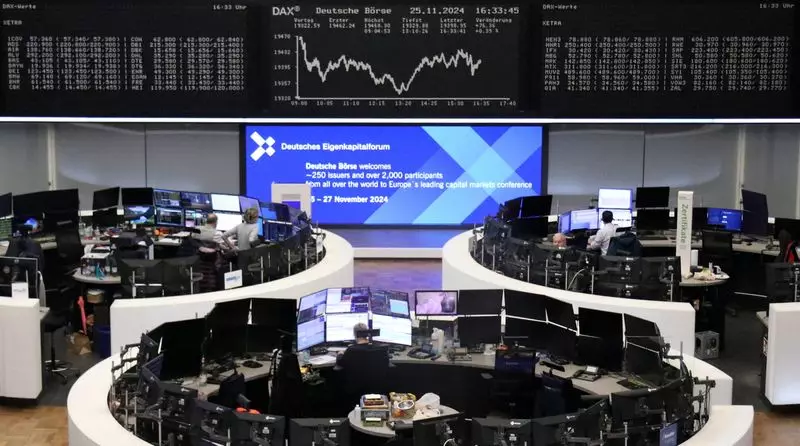European equity markets displayed surprising resilience on a Thursday as they approached one-month highs despite fresh political turmoil in France. The political landscape shifted drastically when lawmakers voted to oust Prime Minister Michel Barnier—a move that had been widely anticipated but still sent ripples through the financial markets. The pan-European index, STOXX 600, recorded a modest increase of 0.2% by the middle of the trading day, marking its sixth consecutive session of gains. Meanwhile, France’s CAC 40 index edged up 0.3%, briefly touching a three-week peak, signaling confidence among investors who seemed unfazed by the political upheaval.
As Barnier prepares to step down, likely making him the shortest-serving prime minister in the contemporary history of France, concern looms over governmental stability. The risk of the country being without a robust administration or a formalized 2025 budget increases. However, constitutional provisions are in place that can mitigate the likelihood of a government shutdown resembling those witnessed in the U.S. This situation brings to light the precarious nature of political circumstances impacting fiscal policy and investor behavior. According to Susannah Streeter, an expert in financial markets, the market’s tepid response can be attributed to the fact that the resignation had been anticipated, reflecting a sense of normalcy amidst chaos.
Interestingly, the risk premium for holding French government debt relative to safer German Bunds decreased, falling from levels not seen for over a decade. This decline suggests that investors were braced for the political fallout but reacted with a degree of calm. Market analysts noted that several participants seemed to operate under a “buy on rumors, sell on news” mentality. Such a perspective allows for buoyancy in equity markets even when the political stratum remains tenuous.
The day’s trading also illuminated varied performances across the corporate sector. Prominent French banks experienced gains; notable players like BNP Paribas, Societe Generale, and Credit Agricole saw their shares rise between 1.7% and 2.8%. The positive sentiment extended to other sectors as German copper producer Aurubis witnessed a staggering 14% increase following an impressive dividend announcement. Contrastingly, some companies struggled; British oil giant Shell dipped 1% as it unveiled a merger of its UK offshore oil assets with Norway’s Equinor, while French jet engine manufacturer Safran dropped by 4.9% after presenting new financial forecasts that underwhelmed analysts.
As President Macron prepares to address the nation, expectations abound regarding the swift appointment of a new Prime Minister ahead of a ceremonial reopening of the Notre-Dame Cathedral. This pivotal moment could serve to stabilize the government, but the intricate relationship between political dynamics and market confidence remains apparent. Investors will undoubtedly be watching for both immediate impacts and long-term implications of France’s political landscape as they navigate a complex financial terrain fraught with uncertainty yet shaped by underlying resilience. The outcome may well influence not only the French market but also the broader European economic outlook in this ever-evolving landscape.

